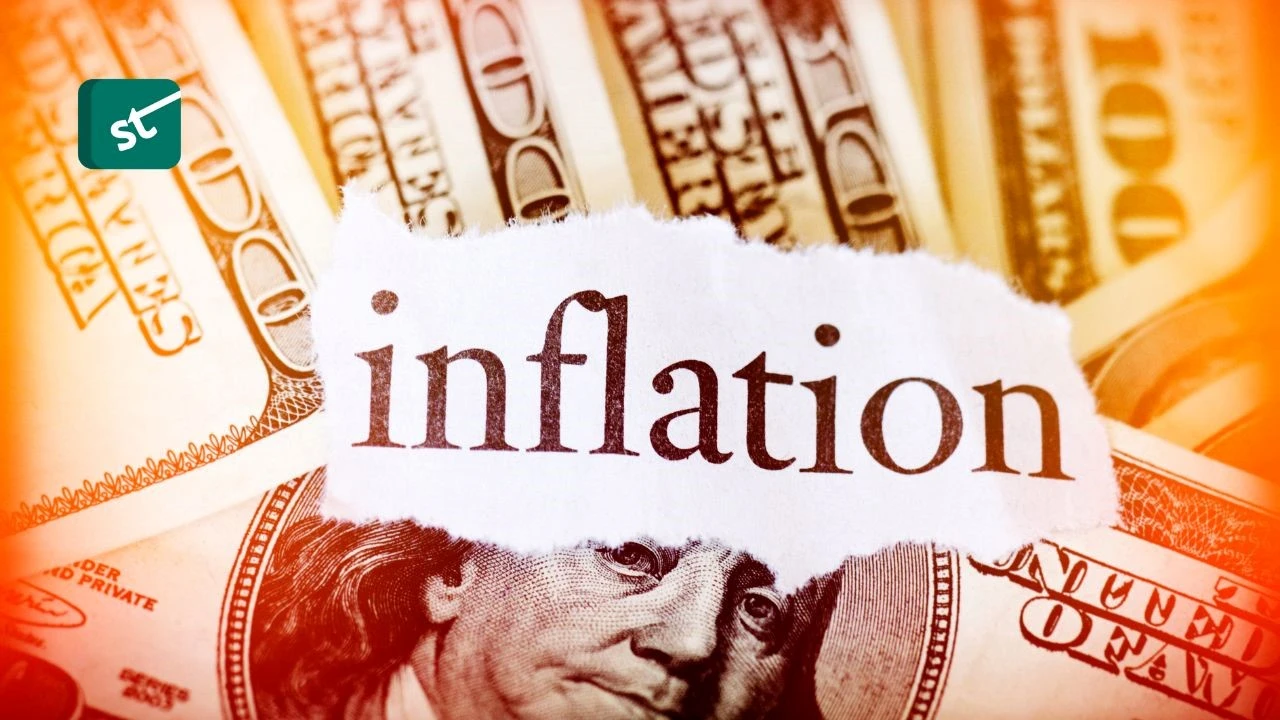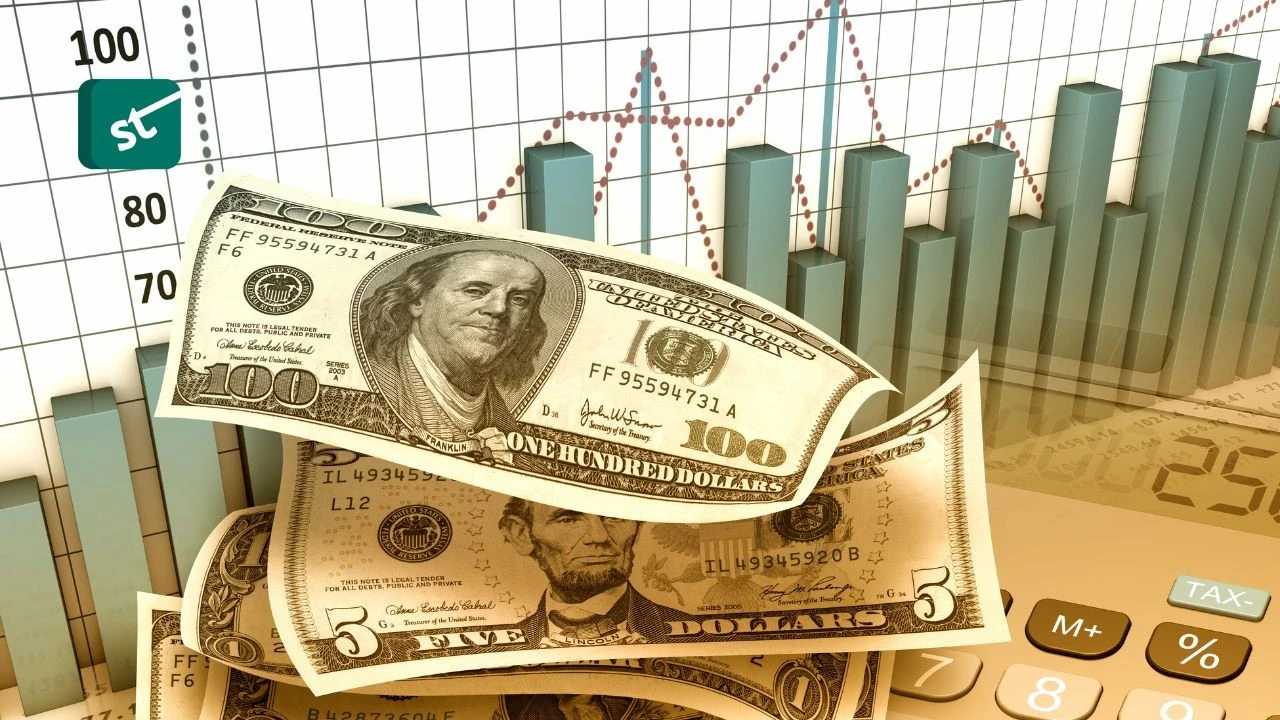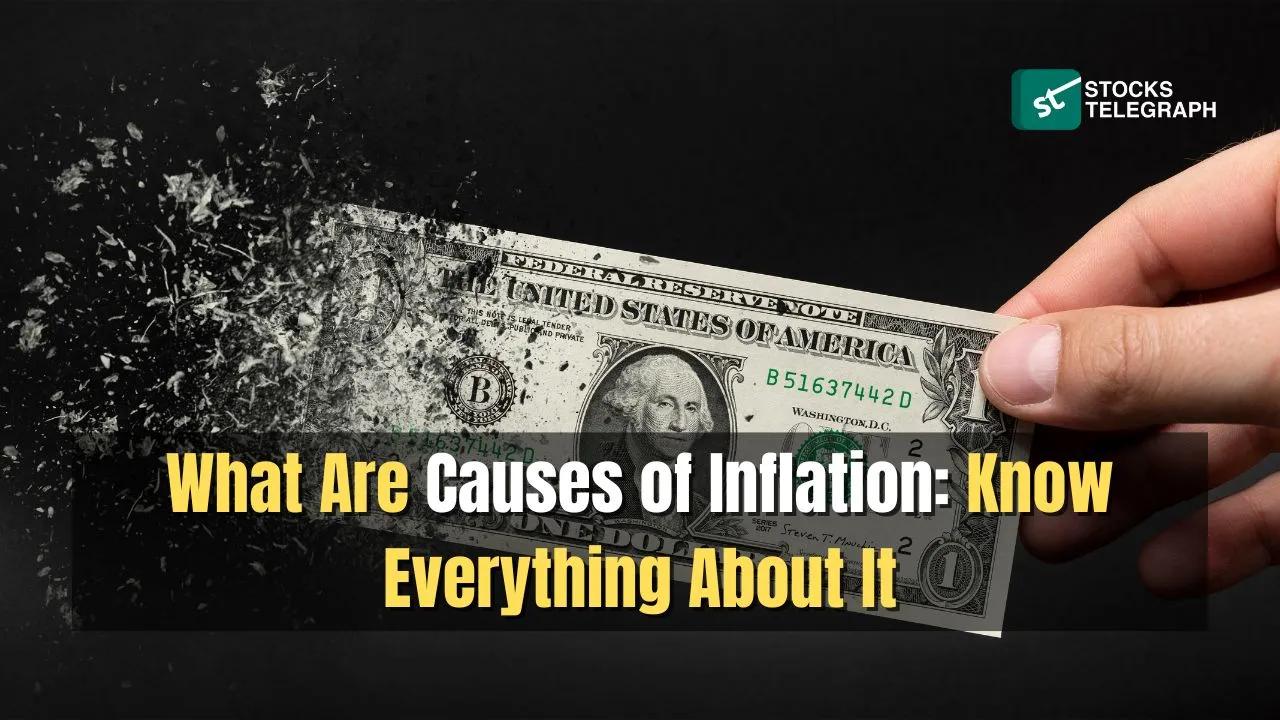The global economy is currently undergoing one of the most severe waves of inflation recorded in recent history.
In the United States alone, the consumer price index (CPI) rose by 8.3%, which was the highest since the 1980s.
Given the interconnected nature of global industries, there has hardly been a region that did not see a hit as a result of the present economic circumstances.
Standards of living across the globe have already begun to see adverse impacts.
This inflation is unique to the previous historical examples, given its largely universal and pervasive nature. Economies all across the globe are likely to feel the pinch.
In this article, we attempt to arrive at the core of this global inflation crisis and understand what are the causes of inflation.
We also present several recommendations and guidelines that could prove useful to investors looking to safeguard their wealth in conditions of such macroeconomic stress.
What is Inflation?
Before we dive into what are the causes of inflation, we attempt to answer one basic question. What exactly is inflation?
Inflation is, at its core, a rather simple phenomenon to understand. It refers to a period where the economy sees a general increase in the prices of goods and services.

When the prices of all things surge and income remains constant, the net result is a decrease in the purchasing power of market participants, and hence a devaluation of a currency over time.
In simple terms, one unit of currency gets you fewer goods or services as a result of inflation, than it would in normal times.
The initial trigger behind the price increases typically relates to the forces of demand and supply, which impact all things in a trickle-down manner.
For example, if the crude oil global supply sees disruption, oil producers worldwide would no longer be able to meet global demand, which will end up causing global inflation.
For this mismatch to be corrected, producers raise oil prices accordingly. The more severely supplies are limited, the steeper the increase in prices.
Applying this concept to a more macroeconomic context leads to severe implications for individuals, households, and businesses.
Fundamentally to understand inflation, one would initially need to turn to economics, rather than finance.
This is a crucial point to understand for anyone researching about what are the causes of inflation.
For one, there is a general decrease in the disposable incomes of households, which leads to less spending on luxury and non-essential items.
This in turn impacts businesses and entire industries like a domino effect.
When disposable incomes fall too much, stagnation and inflation take place simultaneously, which results in what is known as stagflation.
To ensure survival these industries are forced to undertake cost-cutting measures and serious restructuring, such as downsizing, to match the reduced demand.
Increased unemployment, high costs of living, and a general slowdown of commercial activity altogether are a recipe for panic.
This is the current status of affairs, taking place at a global level in 2022 and thus becoming the reason for inflation globally.
For anyone wondering what is the current rate of inflation, the global figure stands at almost 7% in 2023.
What Are the Causes of Inflation?
Now that we understand global inflation at a conceptual level, we attempt to contextualize the economic crisis presently impacting the world. This involves touching upon what are the causes of inflation.

In the current times, prices of commodities are surging due to several variables that perfectly align to result in the worst inflationary period witnessed in recent history.
This is why, the question, what is the current rate of inflation, is on everyone’s minds.
Many claim that the primary trigger for these conditions is the Russian invasion of Ukraine in early 2022.
However, inflationary conditions go back to early 2021. Although Russia’s invasion has indeed resulted in a breakdown of some of the most critical supply networks of the global economy.
When the coronavirus ravaged the globe in 2020, most industries had been brought to their knees. With the imposition of city-wide lockdowns, businesses, and industries took a serious hit.
However, inflation did not immediately take off, given that the demand fell with people’s movements restricted in developed regions across the world.
It was not until 2021 that the macroeconomy began to feel the shakes. With the easing of restrictions and mass vaccine distribution, life gradually began approaching normalcy.
Once demand began seeing a surge, industries were poorly prepared to overcome disruptions and perform at pre-pandemic level capacity.
The disbalance caused a general price increase throughout global markets.
It was not until early 2022, however, that things went from bad to much worse. Tensions between the Russian Federation and Ukraine had already been flaring up for months.
In March 2022, Russia initiated the invasion of Ukraine by conducting aerial strikes on its capital city of Kyiv.
Four months on, and the crisis continues to drag on, with no end in sight. Ukraine, which produced 17% of the global corn crop, and 12% of the global wheat crop, saw its exports cease entirely.
This had led to rocketing food prices throughout the global food markets.
Moreover, these conditions were exacerbated by global sanctions on Russia, which impacted the supply of Brent crude oil, the price of which rose from $97 to almost $127 on the 8th of March, 2022.
In summary, surging post-Covid demand, coupled with global supply restrictions, are causing record-breaking levels of global inflation.
Many point out that these conditions are likely to persist. This is due to the likelihood of sanctions on Russia remaining indefinite, even after the war’s end.
Economists further add that pessimism is playing quite a big role in these macroeconomic conditions.
It is not just present supply, but the anticipation of future supply restrictions that are influencing pricing by producers.
Therefore, stability could likely come about with some certainty about the future outlook and a clear way forward.
To further add to our discussion, the following are crucial factors to help understand what are the causes of inflation:
-
Supply Shocks
Ever experienced a sudden shortage of goods or services? That’s a supply shock, and it can contribute to inflation.
When there’s a disruption in production, like a natural disaster or a major supply chain issue, it reduces the availability of products, leading to higher prices. So, supply shocks definitely play a role in the inflation game.
-
Expectations and Spirals
Have you ever noticed how people’s expectations can shape reality? Well, the same goes for inflation.
When people start anticipating price hikes in the future, they tend to adjust their behavior accordingly.
They may demand higher wages or spend more, thinking they need to beat the rising prices.
But this can create a cycle where rising expectations lead to higher prices, and higher prices, in turn, reinforce those expectations.
-
Unemployment and Inflation
When an economy is running at or near full employment, the demand for labor increases. And as more people get hired, their wages tend to go up.
But higher wages mean higher production costs for businesses, which can result in higher prices for goods and services.
So, unemployment and inflation often go hand in hand, playing a delicate balancing act.
-
Money Supply
Now, let’s discuss the role of money supply. When there’s an increase in the amount of money circulating in an economy, whether through the government printing more money or through expansionary monetary policies, it can have an impact on prices.
Why? Well, think about it. When there’s more money floating around, people have more purchasing power.
And when demand exceeds supply, prices tend to rise. So, changes in the money supply can definitely contribute to inflation.
What Drives Inflation
Now that we’ve explored what are the causes of inflation, let’s dive deeper into the specific drivers that can push those prices up.
Understanding these drivers can provide valuable insights for investors like you.
-
Cost-Push Inflation
Imagine a situation where the costs of production shoot up, causing businesses to increase prices. That’s cost-push inflation in action.
It occurs when factors like rising raw material prices or increased wages force companies to pass on those expenses to consumers, leading to overall price increases.
-
Demand-Pull Inflation
Ever been caught up in a shopping frenzy during a popular sale? Well, that’s demand-pull inflation for you.
It happens when consumer demand surges, outpacing the supply of goods and services.
As more people chase after limited products, businesses can raise prices to meet the high demand, creating inflationary pressures.
-
Built-In Inflation and Rising Wages
Here’s an interesting phenomenon: built-in inflation.
It occurs when people expect prices to rise, so they negotiate higher wages to keep up with the anticipated increase in the cost of living.
However, the built-in cycle can perpetuate itself, as higher wages lead to higher production costs, prompting businesses to raise prices even further.
-
The Housing Market
The housing market is seen by economists as a hotbed for inflationary influences. When demand for housing outstrips the available supply, prices skyrocket.
Factors like population growth, low interest rates, and limited housing construction can all contribute to inflationary pressures within the housing market, affecting overall inflation levels.
Due to this dynamic, economists always advocate investing in REITs during inflation as a good step to take.
-
Expansionary Fiscal and Monetary Policy
When governments and central banks aim to stimulate economic growth, they may implement expansionary fiscal and monetary policies.
These measures involve increasing government spending, cutting taxes, or lowering interest rates to encourage borrowing and investment.
While these policies can boost economic activity, they can also increase the money supply and potentially contribute to inflation.
-
Monetary Devaluation
Have you ever traveled abroad and noticed that your currency’s value is lower compared to the local currency? Well, that’s a form of monetary devaluation.
When a country deliberately reduces the value of its currency relative to others, it can lead to higher import prices.
As the cost of imported goods rises, it can contribute to inflationary pressures within the economy.
Measures of Inflation
To truly understand what are the causes of inflation, it’s crucial to have reliable measures that accurately reflect price changes in the economy.
In this section, we’ll explore some of the key measures used to track inflation. So, join us as we embark on a journey to decode the following metrics:
-
Consumer Price Index (CPI)
The CPI is like a snapshot of the average prices paid by consumers for a basket of goods and services.
It covers a wide range of items, from groceries to housing and transportation, providing a comprehensive gauge of inflation from the consumer’s perspective.
By tracking changes in the CPI, economists and investors can assess the purchasing power of consumers over time.
-
Producer Price Index (PPI)
While the CPI focuses on consumer prices, the PPI zeroes in on the cost of goods and services at the wholesale level. It measures price changes from the point of view of manufacturers.
By monitoring the PPI, economists can figure out the cost pressures faced by businesses, which can eventually trickle down to affect consumer prices.
The distinction between PPI vs CPI is crucial for anyone interested in what are the causes of inflation.
-
GDP Deflator
Think of the GDP deflator as a tool that captures inflation within the broader economy.
It is a measure that compares the current value of goods and services produced to a base year, reflecting changes in both prices and the overall production levels.
By tracking the GDP deflator, analysts can gauge the inflationary pressures impacting the entire economy. It is a highly simple tool with effective results.
-
Personal Consumption Expenditures (PCE) Price Index
The PCE price index is another tool economists use to assess inflation.
It focuses especially on personal consumption expenditures, which include a much broader range of goods and services compared to the CPI.
The PCE index is often favored by policymakers and the Federal Reserve due to its comprehensive coverage and its incorporation of substitution effects that consumers may employ in response to price changes.
How to Protect Against Inflation
Now that we understand what are the causes of inflation, let’s explore some strategies to protect our investments and finances from its erosive effects.

By implementing these measures, you can shield yourself against the rising tide of inflation and safeguard your hard-earned money:
-
Invest in Stocks
Consider allocating a portion of your portfolio to stocks, as they have historically shown the potential to outpace inflation.
Diversify across sectors and opt for companies with solid fundamentals, as they tend to weather inflationary pressures more effectively.
-
Buy Inflation-Protected Securities
Inflation-protected securities, such as Treasury Inflation-Protected Securities (TIPS), are designed to preserve the purchasing power of your investments.
These bonds adjust their principal value based on changes in the CPI, shielding you from the erosion caused by inflation.
-
Save At High-Interest Rates
Look for savings accounts or negotiable CDs that offer competitive interest rates. By parking your funds in accounts with higher rates, you can potentially outpace inflation and maintain the value of your savings over time.
-
Buy An Inflation Hedge
Consider investing in assets that tend to appreciate during inflationary periods, such as commodities like gold or real estate.
Gold investment during inflation is a great step to take, especially through gold-focused inflation hedges.
These inflation hedges can serve as a store of value and act as a buffer against the eroding effects of rising prices.
-
Own Rental Real Estate
Investing in rental properties can be a viable long-term strategy to combat inflation.
Rental income often keeps pace with inflation, allowing you to maintain a steady cash flow and potentially benefit from property value appreciation over time.
Investing in REITs during inflation is a great way to own real estate and see its hedging benefits right away.
-
Lock In Low Fixed Interest Rates
If you plan to make a major purchase, like a home or a car, consider securing a loan with a low fixed interest rate.
This can be advantageous during inflationary periods, as the real value of the debt decreases over time, allowing you to pay it off with cheaper dollars.
Who Benefits from Inflation?
While inflation can erode the purchasing power of money, it’s important to note that certain individuals and entities can actually benefit from its presence.
Those who predominantly own assets that tend to rise in value with inflation, such as real estate or stocks, can see their investments appreciate.
Additionally, borrowers with fixed-rate loans benefit as the real value of their debt decreases over time.
Wage earners who receive regular cost-of-living adjustments may also experience an increase in their income.
However, it’s essential to remember that the overall impact of inflation varies, and its effects are typically negative from a broader sense, as the purchasing power of the masses is chipped away, often substantially.
How To Manage Through Inflation
Managing inflation requires a proactive approach to protect your finances and maintain your purchasing power. Start by closely monitoring your expenses and budgeting wisely.
Look for opportunities to cut unnecessary costs and prioritize essential items.

Consider seeking ways to increase your income, such as exploring side gigs or pursuing professional development to enhance your earning potential.
It’s also important to stay informed about economic trends and be prepared to adapt your financial strategies accordingly.
Finally, maintain an emergency fund to cushion any unexpected expenses that may arise.
By staying vigilant and taking proactive steps, you can navigate the challenges of inflation with greater confidence.
Who Is Hurt By Inflation?
Inflation can have a particularly challenging impact on certain groups of individuals. Those with fixed incomes, such as retirees or individuals on pensions, may find it difficult to keep up with rising prices.
Similarly, people living paycheck to paycheck may struggle as their purchasing power diminishes.
Additionally, those with high levels of debt may face increased difficulty in repaying loans due to the decreasing value of currency.
Inflation can also lead to higher interest rates, affecting borrowers and potentially making it more expensive to obtain credit.
It’s important to recognize the potential hardships faced by these individuals and develop strategies to mitigate the effects of inflation on the financial well-being of everyone.
How Does Raising Interest Rates Help Inflation?
When it comes to fighting inflation, one tool that central banks often employ is raising interest rates.
But how exactly does this measure help tackle the rising prices that can erode the value of our money?
Simply put, by increasing interest rates, central banks encourage saving and discourage borrowing.
When interest rates are higher, people tend to save more because they can earn a better return on their savings.
This decrease in spending helps to reduce the circulation of money in the economy, thereby curbing inflationary pressures.
Additionally, higher interest rates make borrowing more expensive, leading individuals and businesses to think twice before taking on new loans.
This decrease in borrowing and spending further contributes to reducing the demand for goods and services, which can help stabilize prices.
How to Avoid Global Inflation?
Now that we’ve both explained and contextualized inflation in the present circumstances, we move on to offer some guidance about how to protect one’s self against the impacts of inflation.
Seasoned investors know that, although global inflation is an indicator of market distress, it is fully capable of being hedged through the right planning.
Many investors also go a step forward and aim for significant gains within the prevalent circumstances.
Firstly, your best option to find protection against global inflation is by investing in the stock market, in general.
Where goods and services prices climb, so do those of certain stocks – especially those likely to climb during inflation.
Parking your funds in such a class of stocks would protect it from devaluation amidst wider stresses.
Moreover, investing in the stock market holds a critical advantage that one does not find in the purchase of commodities such as gold. Even though gold investment during inflation is always a great step to take.
Most stocks pay a periodic dividend which can further assist shareholders’ purchasing power from shedding.
Unlike the purchase of commodities, your stocks with high dividend yields will be delivering you value in the form of liquid cash flow.
Property is typically a go-to investment option for quite a few, given its rising prices. It is also a conservative investor’s favorite due to its capability to deliver rental income.
However, unlike stocks, real estate is an extremely illiquid asset. Stocks buy and sell instantaneously. However, the downside is their extreme volatility, which brings the need for caution.
Ideally, you’d be looking for stocks that soar during inflation, such as those which deal in commodities.
Oil and gas companies, gold mine stocks, and food producers are all great options to consider. Higher commodity prices would typically mean higher profit margins and subsequently higher net earnings.
What better way to ride the global inflation wave upward, instead of sinking in your devaluing funds that sit idle?
Conclusion
Global Inflation understandably rings alarm bells across the economy. Higher prices, reduced purchasing power, disrupted supply, and unemployment.
These are some of the buzzwords defining present-day discourse.
Understanding what are the causes of inflation is the first step to taking the right decisions in such economic circumstances.
Those that plan their financial decisions well can gain big even amidst these wider adversities.
In order to have a thorough grasp of the present situation, it is critical to understand the core underlying factors.
These include the economic fallout of Covid-19 and the supply chain disruptions caused by Russia’s invasion of Ukraine.
Frequently Asked Questions
Can Companies Benefit from Inflation?
Yes, companies can benefit from inflation through increased revenues and profits as the prices of their products or services rise, and they are in a better position to use inflation to their advantage by adjusting pricing and contracts to account for rising costs.
When Will Inflation Go Down?
Inflation will likely go down after a combination of sustained efforts by the international community to manage inflationary pressures, which can lead to a gradual decline of prices over time, as well as an improvement in supply chain networks.
